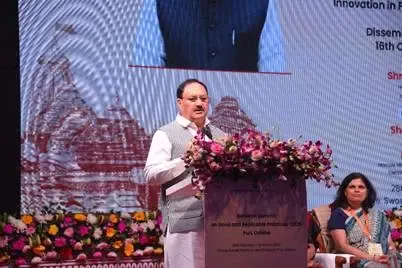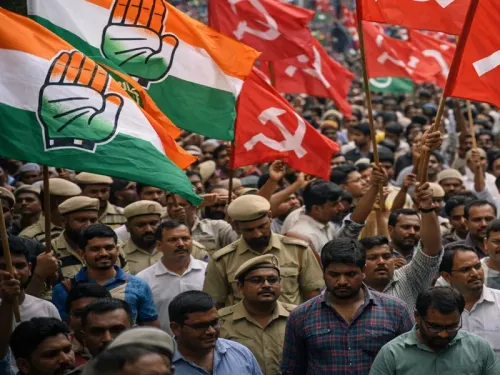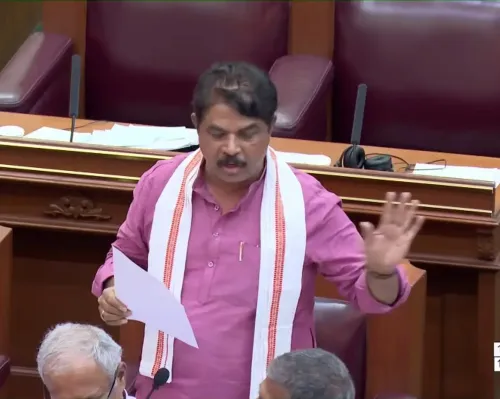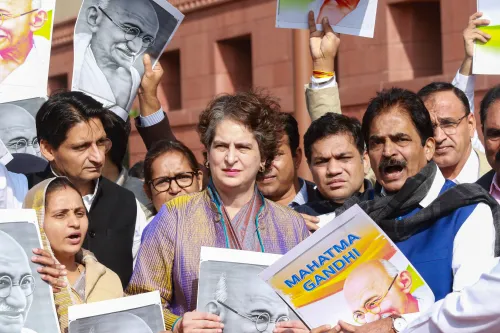India Achieves Major Progress in Healthcare Since 2014, Prioritizing Quality and Affordability: Nadda

Synopsis
Key Takeaways
- India focuses on quality and affordability in healthcare.
- Significant reductions in MMR and IMR.
- India's decline in TB incidence is 17.7%, exceeding global averages.
- Ongoing campaign aims for TB elimination by 2025.
- Importance of lifestyle changes to combat non-communicable diseases.
New Delhi, Feb 28 (NationPress) India has made remarkable advancements in healthcare since 2014, focusing on quality and affordability for everyone, stated Union Health Minister JP Nadda on Friday.
While addressing the 9th National Summit on effective and replicable practices and innovation in the public healthcare system in Puri, Odisha, Nadda pointed out, “The Union Government is dedicated to providing quality and affordable healthcare services for all citizens.”
He highlighted the initiatives taken under the Ayushman Arogya Mandir as part of the National Health Mission (NHM), which has fortified the foundation of primary healthcare within the overall healthcare framework.
Nadda also commended the government’s success in lowering the Maternal Mortality Rate (MMR) and the Infant Mortality Rate (IMR) across the nation.
“The reduction of MMR in India is twice that of the global decline, showcasing the efforts made to strengthen the healthcare system from its roots. The IMR and under-5 mortality rates have also experienced a significant decrease,” Nadda noted.
Additionally, the Union Health Minister emphasized the decline in malaria cases and tuberculosis occurrences in the nation, which have been recognized by the World Health Organization (WHO). According to the WHO Global TB Report 2024, India has observed a remarkable 17.7% decline in TB incidence from 2015 to 2023, surpassing the global average decline of 8.3%.
Nadda remarked that despite challenges posed by Covid-19, “India has remained steadfast in its TB eradication goals.” He mentioned the ongoing 100-day TB elimination campaign, which is active in 455 districts across 33 states, having already identified five lakh TB patients. India aspires to eliminate TB by 2025, ahead of the global deadline.
Furthermore, Nadda stressed the importance of adopting lifestyle changes to mitigate the risks of non-communicable diseases such as diabetes, hypertension, and cancer.
The Union Minister acknowledged the contributions of ASHA workers, SHOs, and other grassroots health workers in achieving these milestones in the healthcare sector.
The two-day summit will display and document various exemplary practices and innovations implemented by States and Union Territories to tackle public health challenges.










